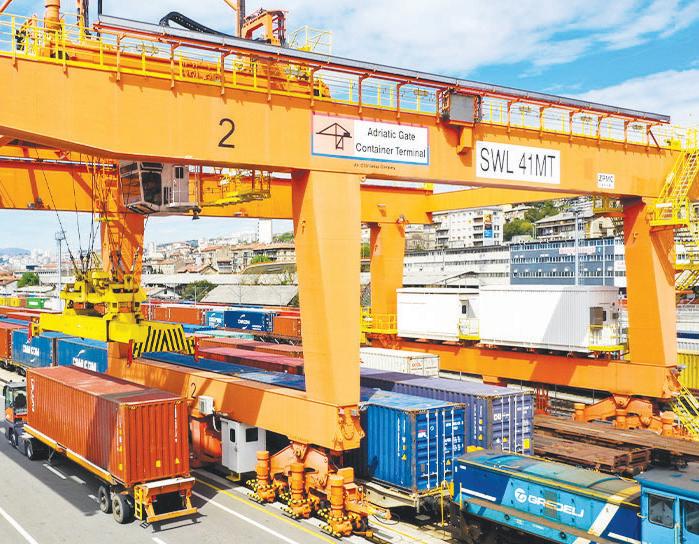
2 minute read
IN
BSP may cut interest rates in first half of 2024—BMI
THE Bangko Sentral ng Pilipinas will likely cut the key interest rates by the first half of 2024 after holding on for the rest of 2023 on the back of falling inflation, a unit of Fitch Group said in a report Monday. BMI said for the next month alone, the BSP might continue keeping the overnight borrowing rate unchanged at 6.25 percent.
1 year, 2 years, 3 years, 4 years, 5 years, 7 years and 10 years. This will use the US dollar Secured Overnight Financing Rate, or SOFR, as the floating rate benchmark for the US dollar leg.
The USDPHP CCS market is supported by Bloomberg, a globally-recognized trading platform provider for various financial products.
BAP is comprised of 20 local banks and 24 foreign bank branches.
The group earlier endorsed the use of BVAL (Bloomberg Valuation) methodology as a reference rate. The Bangko Sentral ng Pilipinas agreed to create an overnight rate initially based on the 28-day BSP bill rate and later on six-month yield curve that would serve as reference rate for various financial transactions in the country with the scheduled phase-out of the London Interbank Offered Rate or Libor on June 30.
“We think that the BSP will leave interest rates on hold once again at the next meeting on Aug. 17 given falling inflation,” it said.
“Given that inflation is falling faster than what we originally anticipated, economic activity is starting to soften and the US Fed is nearing the end of its tightening cycle, we now think that policy rates will be kept on hold for the remainder of the year, and only be cut in 2024,” it said. The Monetary Board kept the policy interest rate steady at 6.25 percent last week due to the successive deceleration in inflation since its peak in January 2023 at 8.7 percent. Inflation slowed to 8.6 percent in February, 7.6 percent in March, 6.6 percent in April and 6.1 percent in May. Julito G. Rada
Retail sector yet to see changes under new law
THE country’s retail sector has yet to see the changes promised by the amendments to the Retail Trade Liberalization Act of 2000 and the investments the sector expected when the law was enacted in 2022.
Philippine Retailers Association chairman Paul Santos said the anticipated change had not yet happened. “What we’re seeing would be existing foreign retailers already doing business in the Philippines expanding their presence. But according to my knowledge, this has already been planned long before the epidemic but was just postponed,” he said. He said the PRA believed that investment in Philippine retailing was not just about liberalizing the market, and a big part of the decision had to do with economic motivations.
He said a foreign retailer investing in the Philippines would want to see for himself if the Philippine retail economy and Philippine consumers could support or buy goods and services he was trying to sell.
“So liberalization in and of itself, is not a guarantee that businesses would invest in the Philippine market,” he said.
Philippine retailers, however, expect annual retail transactions to hit pre-pandemic growth levels in 2023, as more retailers turn to omnichannel and online platforms to maximize growth potential, while those who are in the virtual marketplace are also trying to set-up physical presence. Othel V. Campos
Security Bank eyes P8-b fixed-rate bond offering
SECURITY Bank Corp., one of the country’s largest private domestic universal banks, plans to raise at least P8 billion from the issuance of fixedrate peso bonds to fund lending activities and expand funding base.
the of its under








